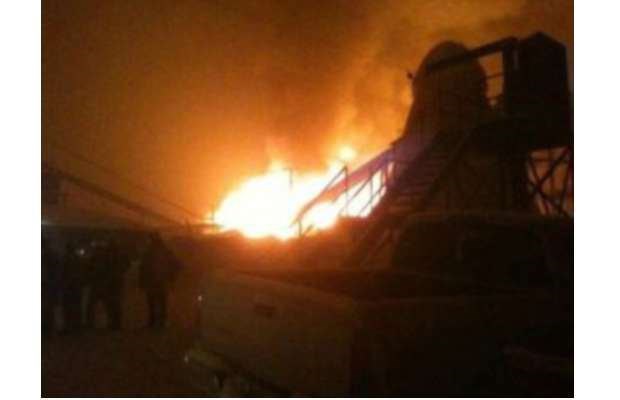Bridging communication gaps and having a more diverse workforce emerged as key elements requiring attention to prevent another tragedy like the one at Babine Forest Products, according to recommendations issued Friday from a coroner's inquest into the Jan. 20, 2012 explosion that killed two employees and injured dozens more.
The five-man, two-woman jury, which heard testimony from nearly 50 witnesses over two-and-a-half weeks during an inquest held in Burns Lake, began deliberations on Wednesday afternoon. The group was charged with deciding whether the deaths of Carl Charlie, 42, and Robert Luggi, 45, were natural or the result of either accident, suicide, homicide or undetermined.
Ultimately, the deaths were ruled accidental, but the jury issued 33 recommendations aimed at preventing similar incidents like the sawmill explosion that destroyed the community's largest employer.
Many of those recommendations focused on strengthening communication, whether it was at the employer or union level or within WorkSafeBC.
Among the nine recommendations directed at Babine Forest Products, the jury called on the employer to post and update safety notices and minutes of occupational health and safety meetings as well as to discuss all WorkSafe and B.C. Safety Authority reports, alerts and investigations.
The inquest heard from workers who said they never saw the results of inspections and investigations and were not aware of notices and meeting minutes.
The jury also called on updates to Babine's employee orientation process to add more emphasis during the job-shadow stage on workers' rights and responsibilities.
Mill owner Hampton Resources Inc. was called on to share health and safety information across its entire organization. During the inquest, the jury heard that though information on the explosive nature of wood dust was publicly available as early as 2008, it wasn't effectively broadcast across all of Hampton's milling operations.
At the union level, the jury recommended that United Steelworkers develop an easily scrutinized system of communication between all levels of the union, as the inquest heard that pertinent health and safety information wasn't always making it to the shop floor.
Communication-related recommendations were also directed to WorkSafeBC, which was called on to create an information-sharing system with a focus on making sure that there's accountability for receiving info as well as a suggestion to host an annual meeting of industry representatives to share best practices.
Other recommendations focused on maintenance and dust-removal practices, such as: introducing thermal guns and thermal imaging to identify hot spots in a mill; using a combustible gas monitor to investigate gas smells; and encouraging employees to use the Manufacturers' Advisory Group dust audit tool for dust mitigation.
In addition to the jury's recommendations, presiding coroner Chico Newell also issued eight recommendations of his own, with some focusing on workplace diversity as a means of bridging communication gaps.
Inquest testimony pointed to a lack of First Nations representation in supervisory and management positions, leading Newell to call for Babine Forest Products to conduct an employment equity audit. He also recommended United Steelworkers work to proactively recruit Aboriginal employees for union positions.
The jury also recommended that the employer consider an aboriginal liaison co-ordinator or worker ombudsman.
Newell also highlighted the shaky fire inspection record at the mill, which sits on native-owned land.
Evidence presented during the inquest revealed a lack of regulation regarding fire inspections on unincorporated and First Nations lands.
As part of his testimony, Burns Lake fire chief Jim McBride said the mill was subject to regulation by the federal fire marshal, who McBride said he might have met once in his 17 years heading his department.
Newell called on WorkSafe and the office of the Fire Commissioner to collaborate to create a regulation for an annual fire inspection and for the provincial Minister of Justice to ensure the office has the necessary resources to inspect industrial facilities on those lands. He also recommended changes to the province's Fire Services Act so that that the B.C. Fire Code applies to unincorporated and First Nations land.
"We thank the jury and coroner for these recommendations and commend them for the commitment and thoughtfulness they have shown throughout this extensive process," said a press release from WorkSafeBC after the recommendations were released Friday. "Each recommendation will be examined and WorkSafeBC will provide a written response to the coroner."
Shirley Bond's Ministry of Jobs, Tourism and Skills Training was the subject of two recommendations calling for changes to sections of the Workers Compensation Act to allow workers to be informed about the results of investigation reports as well as giving a WorkSafe officer the power to address issues that have gone too long unresolved by a workplace's joint occupational health and safety committee.
"This has been a very difficult process for the community and families involved and again I want to extend my condolences to those who were injured or lost loved one in the Babine mill tragedy," Bond said in a press release. The government will provide a written response to both sets of recommendations from the Babine and Lakeland inquests.



